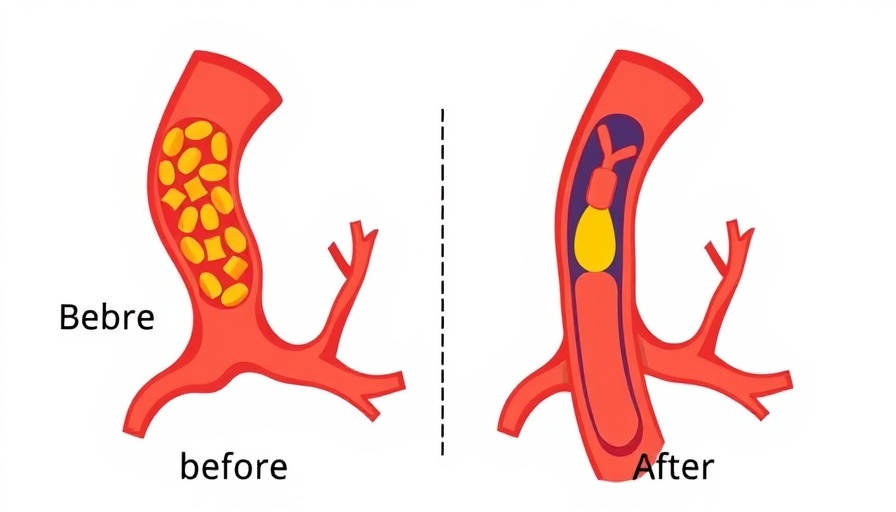
The Surprising Link Between Carbs and Heart Health
In recent years, there has been increasing interest in how dietary choices impact cardiovascular health. Notably, a study known as the "Dietary Intervention to Reverse Carotid Atherosclerosis" investigated whether cutting carbs could actually reverse heart disease and reduce plaque buildup in arteries. This may come as a surprise, especially to those who associate a low-carb diet with weight loss rather than heart health.
In 'Can you Unclog your Arteries by Cutting Carbs?!?', the video explores how dietary changes might impact heart health, prompting us to dive deeper into this intriguing topic.
The Trial's Structure and Purpose
The study enlisted 140 participants aged 40 to 65, all classified as overweight or obese. The aim was to determine how different diets—low-carb, low-fat, and Mediterranean—affected weight loss and, ultimately, heart health. It's important to note that while the researchers aimed to track changes in plaque levels within the arteries, they faced significant limitations, such as a predominately male participant group. This skew can be frustrating, but it reflects the realities of clinical trial recruitment based on health conditions.
The Dietary Interventions Explained
Participants were divided into three groups, each following a distinct diet plan:
- The Low-Carb group aimed for an initial consumption of only 20 grams of carbs, gradually increasing to 120 grams per day.
- The Low-Fat group focused on limiting fat intake to around 30% of their daily calories.
- The Mediterranean group consumed a traditional diet rich in fruits, vegetables, fish, and healthy oils.
Intriguing Results from the Study
One of the most intriguing outcomes was that all participants showed a reduction in the overall thickness of their artery walls by approximately 5%. While this does not directly correlate to a decrease in plaque, it suggests that each dietary intervention was beneficial in certain aspects. Specifically, the low-carb group showed a greater initial weight loss and ApoB (a marker related to cholesterol) reduction compared to the other groups, indicating potential cardiovascular benefits.
Implications for Individual Dietary Choices
So, what does this mean for your dietary habits? The takeaway here is that while restricting carbs might initially lead to quick results, it's the overall quality of the diet that emerges as crucial. Foods high in unsaturated fats—like fish, nuts, and oils—served as effective inclusions across all groups and likely contributed positively to heart health. Ultimately, finding a balanced approach that prioritizes whole, nutritious foods is key.
Small Adjustments for Healthy Living
Incorporating heart-healthy practices can improve your life significantly. If you're passionate about maintaining your cardiovascular health, consider consulting with an alternative medicine practitioner or exploring other holistic health services. Healthy eating patterns, combined with regular physical activity, can contribute to better heart health long-term.
By understanding the outcomes from studies like the one mentioned above, you can make informed choices about your diet that align with your health goals. Sometimes it's the small adjustments in eating and lifestyle that can lead to significant health improvements.
 Add Row
Add Row  Add
Add 




Write A Comment